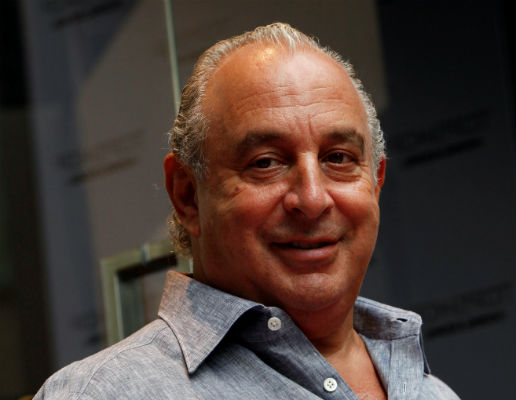Government considering measures against employers using agreements as gag orders against victims of harassment

LONDON (Reuters) - A furore in Britain over allegations of sexual harassment against retail billionaire Philip Green this week has reignited the debate about the use of non-disclosure agreements (NDAs).
Green, the entrepreneur whose Arcadia group owns the TopShop fashion chain, was named in Britain's parliament on Thursday by Labour politician Peter Hain as the businessman at the centre of allegations of sexual harassment and racist abuse of staff.
Hain identified Green after the Daily Telegraph reported earlier in the week that a leading businessman had been granted an injunction by a judge which blocked the newspaper from naming the individual who was the subject of the allegations.
The newspaper was also barred from reporting details of the accusations.
The Telegraph alleged that the businessman had used NDAs to "silence and pay off his alleged victims."
Hain was able to name Green in the House of Lords by using parliamentary privilege, which allows members to speak freely without facing legal action and enables the media to report their comments.
How has Green responded?
Green has denied breaking the law and said in a statement: "To the extent that it is suggested that I have been guilty of unlawful sexual or racist behaviour, I categorically and wholly deny these allegations."
The entrepreneur said that Arcadia "thoroughly investigated" accusations and grievances made by staff and that like other large businesses, the company "sometimes receives formal complaints from employees".
"In some cases these are settled with the agreement of all parties and their legal advisers," he said, adding that he could not comment on the settlements because they were confidential.
What are non-disclosure agreements?
NDAs are ubiquitous in commercial transactions such as mergers and acquisitions and are commonly used to protect company's confidential information and trade secrets.
"In 99 percent of cases an NDA refers to the period in which you’re negotiating the sale of purchase of a business," said Richard Miskella, a partner at law firm Lewis Silkin.
"But over time people have started to use the term more and more loosely so that it just refers to confidentiality clauses and the thing that's quite rightly causing a lot of concern now is the use of confidentiality and gagging clauses in settlement agreements in employment disputes."
NDAs were thrust into the spotlight recently by the sexual assault scandal that has engulfed movie mogul Harvey Weinstein, who used NDAs as part of settlement agreements with alleged victims.
If an individual breaches an NDA they could potentially face a lawsuit.
"There's legitimate unease about the perception that rich people can use these confidentiality terms to silence people," said Miskella.
What are British regulators doing?
Confidentiality agreements are now coming under more scrutiny in Britain. It comes amid the wider "Me Too" movement around the world against sexual harassment and assault.
In March, the Solicitors Regulation Authority, which regulates law firms, issued a warning notice about the improper use of NDAs.
It said that such agreements should not be used to prevent people from reporting misconduct to regulators or offences to law enforcement agencies, or as a "means of improperly threatening litigation against, or otherwise seeking improperly to influence, an individual in order to prevent or deter or influence a proper disclosure."
That was followed in July by a report on sexual harassment in the workplace by the British parliament's Women and Equalities Committee, which urged the government to "clean up" the use of NDAs by enforcing better control and regulation amid concern the agreements are being used to silence victims.
The Telegraph story has brought NDAs into focus once again.
While Prime Minister Theresa May said on Wednesday that she would not comment on a particular case, she added that it was clear that some employers are using NDAs unethically.
"The government is going to bring forward measures for consideration for consultation to seek to improve the regulation around non-disclosure agreements and make it absolutely explicit to employees when a non-disclosure agreement does not apply or cannot be enforced," she said.




